News roundup 1 to 15 May 2025
Asia-Pacific animal health news roundup

Latest activities from FAO’s regional and country teams.
In this news roundup
ANTIMICROBIAL RESISTANCE | ||
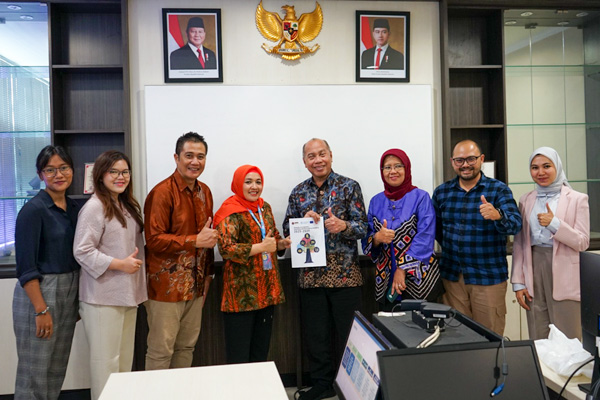 © FAO/Alia Dwirahmani © FAO/Alia Dwirahmani | INDONESIA FAO officially submitted the final draft of the National Action Plan on Antimicrobial Resistance (NAP AMR) 2025–2029 to the Coordinating Ministry for Human Development and Cultural Affairs on 15 May. This plan was developed with support from the European Union and involved extensive consultations with various ministries and key partners. It outlines key strategies for cross-sectoral coordination and is expected to serve as a key reference for the development of a future Presidential Regulation or Instruction. Discussions also covered timelines for endorsement, including the involvement of the Ministry of State Secretariat. The completion of the plan marks a significant step in Indonesia’s commitment to addressing AMR through a One Health approach. | |
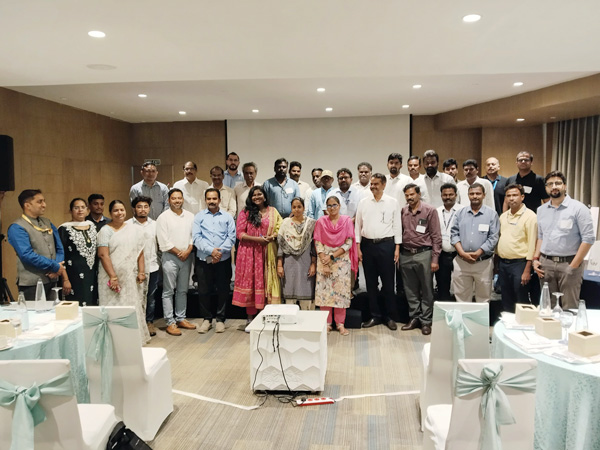 © FAO/Robin Paul © FAO/Robin Paul | INDIA AND ASIA AND THE PACIFIC On 15 May, FAO, in collaboration with the Marine Products Export Development Authority (MPEDA) and the National Centre for Sustainable Aquaculture (NaCSA), organized a stakeholder workshop under the European Union-supported Regional Antimicrobial Resistance (AMR) Tripartite Project to address AMR in aquaculture. The workshop welcomed over 50 participants, including private sector representatives, state authorities, farmer groups, exporters, and industry associations. Key discussions focused on best management practices, antimicrobial stewardship, improved traceability and public-private partnerships. The workshop emphasized the importance of supporting small-scale farmers and scaling up sustainable models to reduce antibiotic use and build sector resilience. | |
| Back to top | ||
EPIDEMIOLOGY | ||
 © FAO/Hao Tang | ASIA AND THE PACIFIC As part of its ongoing webinar series, the Asia-Pacific Epidemiology Network for Training, utilizing the Veterinary workforce, and Sharing evidence for Trust (ENTRVST) held a regional session on 13 May to promote dynamic modelling in smarter animal health decision-making, with support from the Australian Government. The session introduced the Epidemix modelling tool and featured a live demonstration of its application for infectious disease control. Event recordings and updates on future sessions are available HERE via the ENTRVST virtual hub, a peer-to-peer network for animal health professionals across the region. Learn more about the initiative HERE. | |
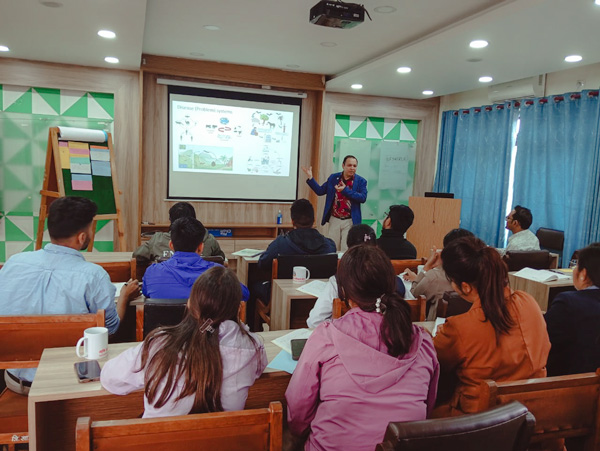 © FAO/Suraj Subedi © FAO/Suraj Subedi | NEPAL FAO, with support from the Pandemic Fund, launched the second cohort of the three-month Field Epidemiology Training Programme for Veterinarians (FETPV) on 4 May in Lalitpur. The training aims to strengthen field epidemiology skills among 18 participants from federal, provincial and local governments, academia, and the wildlife sector. Delivered in collaboration with the Department of Livestock Services and the Agriculture Information and Training Center, the programme supports workforce development for improved animal disease surveillance and outbreak response. | |
LABORATORY | ||
|
| ASIA AND THE PACIFIC AND LAO PEOPLE'S DEMOCRATIC REPUBLIC The Association of Southeast Asian Nations (ASEAN) Regional Animal Health Laboratory Technical Advisory Group (Lab-TAG) meeting was held from 6 to 8 May in Vientiane. It brought together 45 representatives from ASEAN national laboratories, development partners and technical experts to advance regional laboratory systems.
| |
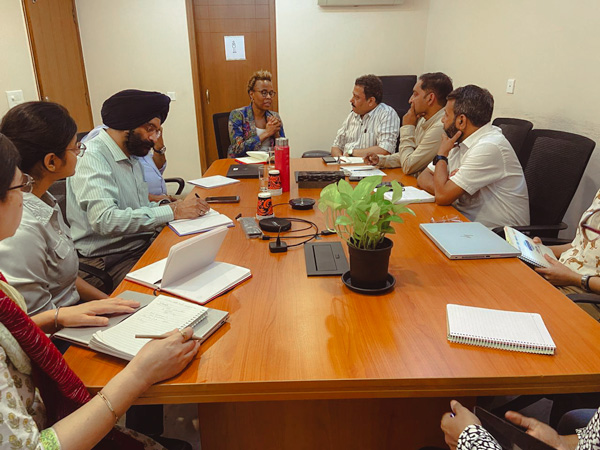 © FAO/Bushra Owaisy © FAO/Bushra Owaisy | INDIA On 9 May, the World Bank team met with FAO in New Delhi to review joint activities supported by the Pandemic Fund, with a focus on strengthening laboratory systems, referencing the INGeS and INTEZ networks. FAO emphasized the importance of selecting laboratories for food residue testing in close coordination with the Department of Animal Husbandry and Dairying. A structured needs assessment is expected to follow, guiding the procurement of equipment and consumables based on identified gaps. The discussions reaffirmed the importance of coordinated efforts and strategic planning to advance laboratory capacities and support India’s preparedness against emerging health threats. | |
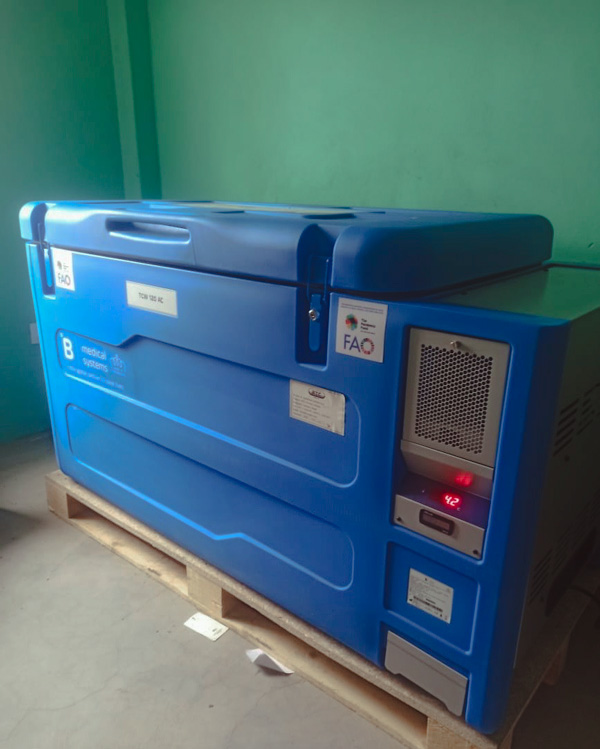 © FAO/Sambriddhi © FAO/Sambriddhi | NEPAL FAO, through the Pandemic Fund, distributed ice-lined refrigerators to eleven district veterinary hospitals and municipalities to improve cold chain capacity for veterinary vaccines. Sites were selected based on a recent cold chain assessment and in coordination with the Department of Livestock Services and provincial directorates. The ice-lined refrigerators aim to strengthen vaccine management systems and ensure effective animal health service delivery at the field level. | |
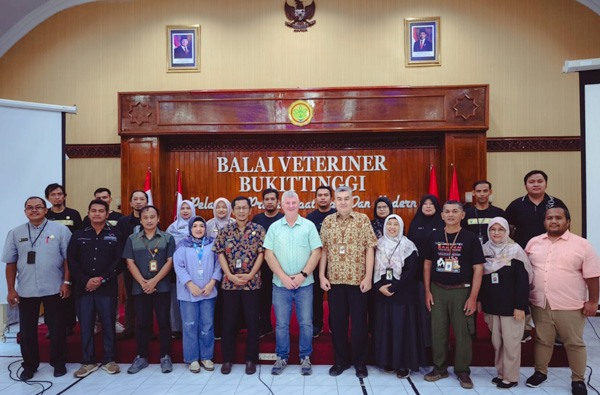 © DIC Bukittinggi © DIC Bukittinggi | INDONESIA As part of the Pandemic Fund project, FAO, in collaboration with an international biosafety expert, conducted a follow-up technical consultation from 1 to 2 May at the Disease Investigation Center (DIC) in Bukittinggi, West Sumatera Province. The visit focused on reviewing biosafety features and renovation plans to ensure the laboratory becomes fully operational with equipment funded through State Sharia Securities. Recommendations were provided to strengthen laboratory safety and functionality in line with international biosafety standards. The consultation supports Indonesia’s goal to improve national diagnostic infrastructure under the One Health framework. | |
ONE HEALTH | ||
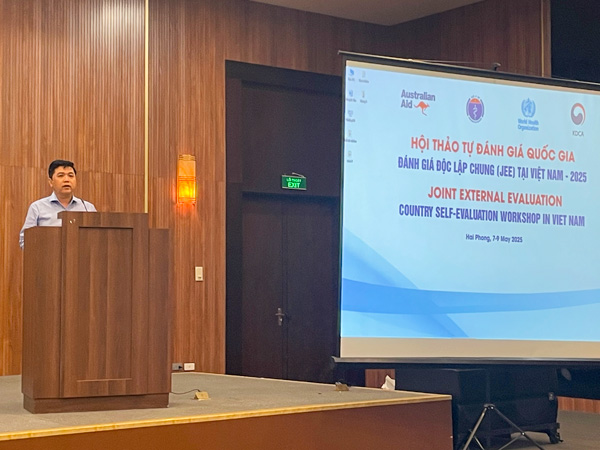 © FAO/Pawin Padungtod | VIET NAM Viet Nam is preparing for its second Joint External Evaluation (JEE) of core capacities under the WHO’s International Health Regulations (IHR), scheduled for July. As part of this process, a national self-assessment workshop was held from 7 to 9 May in Hai Phong, building on a prior technical meeting in April. Participants across sectors finalized technical area scores, identified gaps and strengths, and drafted recommendations. Partners included the World Health Organization (WHO), FAO, International Organization for Migration (IOM) and key Vietnamese ministries. The findings from this workshop will inform the upcoming JEE mission and aid in the development of a national action plan for health security. | |
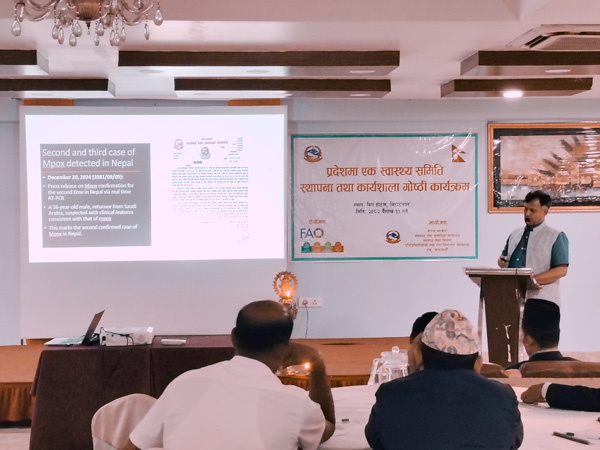 © FAO/Swochhal Prakash Shrestha © FAO/Swochhal Prakash Shrestha | NEPAL Through the Pandemic Fund, FAO supported a One Health workshop in Biratnagar, on 14 May to facilitate the formation of a provincial One Health committee in Koshi Province. The workshop, conducted in collaboration with the Department of Health Services and Department of Livestock Services, brought together 50 senior officials from human, animal and environmental health sectors. Participants agreed on collaborative mechanisms to advance One Health implementation at the provincial level. | |
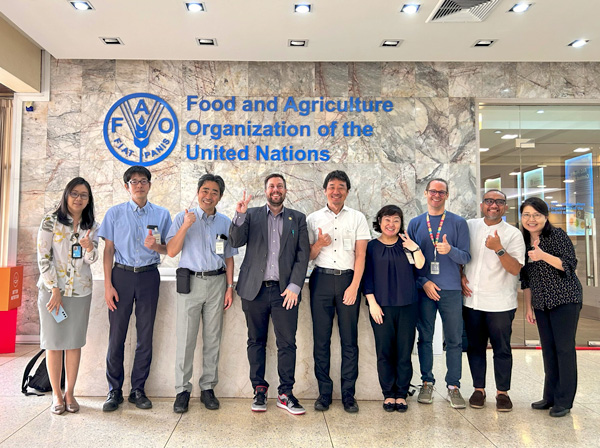 © FAO/Supakorn Pranaporn © FAO/Supakorn Pranaporn | ASIA AND THE PACIFIC On 2 May, FAO welcomed representatives from the Japan International Cooperation Agency (JICA) to the FAO Regional Office for Asia and the Pacific in Bangkok to explore potential collaboration in One Health. The JICA team, based at Thailand’s Ministry of Public Health, has been instrumental in supporting the establishment of the ASEAN Centre for Public Health Emergencies and Emerging Diseases (ACPHEED) Secretariat Office. FAO also shared its experiences in establishing the ASEAN Coordinating Centre for Animal Health and Zoonoses (ACCAHZ) and the existing collaboration in place. Additionally, the meeting also explored opportunities for collaboration across three ASEAN Centers, ACPHEED, ACCAHZ and the ASEAN Centre for Biodiversity (ACB). | |
PARTNERSHIPS | ||
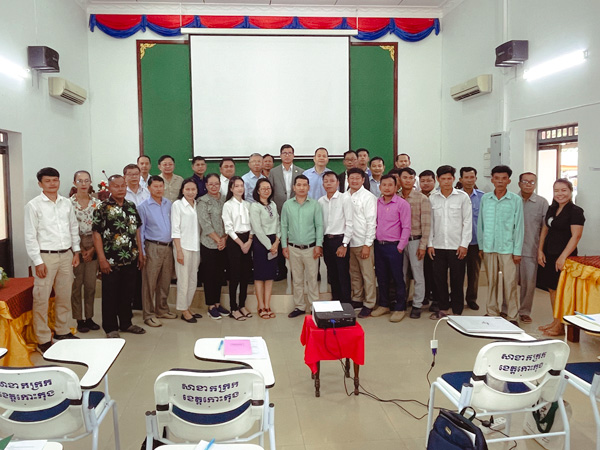 © FAO Cambodia | CAMBODIA FAO collaborated with the General Directorate of Animal Health and Production to review its action on the H5N1 highly pathogenic avian influenza (HPAI) outbreak on 13 May, thanks to the Pandemic Fund for the support. The review brought together 40 representatives from the Forestry Administration, Ministry of Health, Ministry of Environment, development partners and local authorities from the affected provinces. Participants analyzed the outbreak response, identified key challenges and successes and agreed on recommendations to strengthen coordination and preparedness. The review underscored the importance of One Health collaboration in addressing the risks associated with zoonotic diseases. | |
| INDIA FAO organized a scoping mission to the Indian Council of Agricultural Research-Central Institute for Research on Goats (ICAR-CIRG) in Makhdoom on 12 April to assess opportunities along the goat milk value chain. The visit explored goat milk’s nutritional benefits, market feasibility, value-added products and opportunities for livelihood improvement. ICAR-CIRG officials shared ongoing research, sustainability practices and inclusive models, and the mission included a field visit to a supported goat farm. This initiative supports strategic engagement to strengthen India’s non-bovine dairy sector through innovation and partnerships. | |
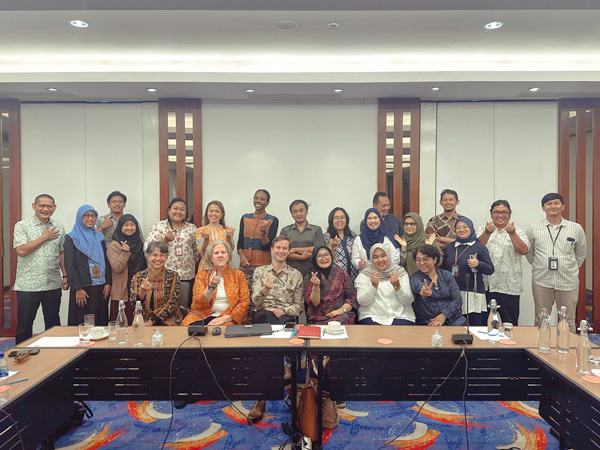 © FAO/Ali Arasyi © FAO/Ali Arasyi | INDONESIA FAO participated in the appraisal mission for the Collaborative Approach for Resilient Surveillance and Pandemic Preparedness in Indonesia (CARE-I) project supported by the Pandemic Fund. This mission was held from 14 to 15 May and was organized by the World Bank and the Ministry of Health, the mission covered project governance, financial management, procurement planning and operational arrangements. FAO provided technical input to support the finalization of the results framework. | |
SURVEILLANCE | ||
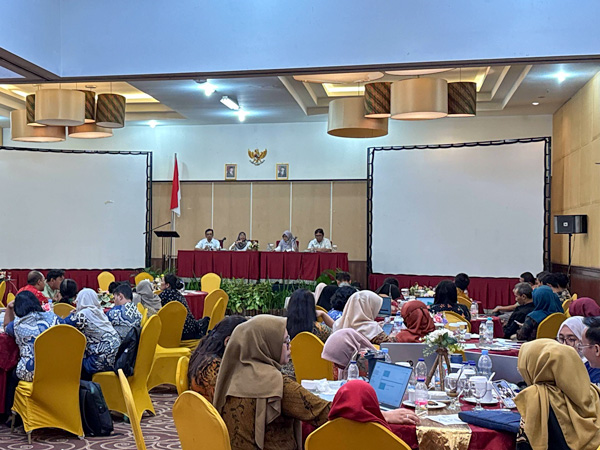 © Indonesia's Ministry of Health © Indonesia's Ministry of Health | INDONESIA From 5 to 9 May, FAO participated in an on-the-job training on integrated cross-sector avian influenza surveillance held in Solo, Central Java Province. Organized by the Ministry of Health, the training brought together representatives from relevant ministries and partners. FAO contributed as a technical speaker, presenting the Joint Outbreak Investigation (JOIN) Tool and guiding participants on joint analysis of surveillance data, emphasizing the importance of integrated, multisectoral collaboration in avian influenza surveillance and outbreak response. Additionally, FAO supported the development of an integrated avian influenza surveillance design for live bird markets and poultry slaughterhouses in Solo. | |
- Learn more about our work on antimicrobial resistance here.
- Learn more about our work on epidemiology here.
- Learn more about our work on capacity development of laboratory here.
- Learn more about our work on One Health here.
- Learn more about our partnerships here.
- Learn more about our work on surveillance here.
Subscribe to our biweekly update here.

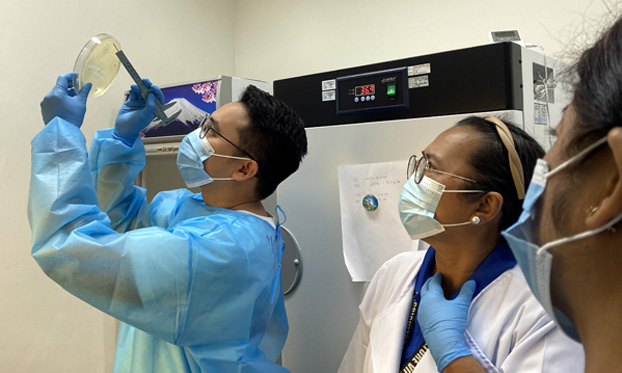 © FAO
© FAO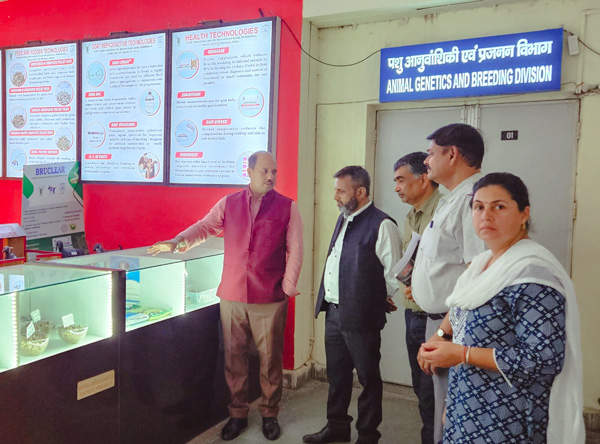 © FAO/Bushra Owaisy
© FAO/Bushra Owaisy